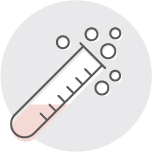CAR-T products in Australia
Presently, three CAR-T products have been approved by the Therapeutic Good Administration for use in Australia. The first approval was granted in 2018, for Novartis's Kymriah® (tisagenlecleucel). In 2020, the TGA approved Yescarta® (axicabtagene ciloleucel), a product developed by Gilead Sciences' Kite Pharma division. In July 2021, Gilead Sciences' Tecartus® (brexucabtagene autoleucel) was also approved by the TGA. Each of these products are indicated to treat specific lymphomas, and Kymriah® is also indicated to treat acute lymphoblastic leukaemia.
Both Kymriah® and, more recently, Yescarta® are reimbursed by the government under the Medicare Benefits Scheme (MBS), which provides a reimbursement regime for procedural and therapeutic services. According to a Commonwealth Government press release in 2020, treatment with Kymriah® would otherwise cost each patient more than $500,000. Because the products are registered as 'class 4 biologics', which cover artificially modified human cells classified as 'high risk', they are not eligible for listing on the Pharmaceutical Benefits Scheme. This is unlike most small molecules and conventional biologics (Therapeutic Goods Regulations 1990, schedule 16).
In mid-May 2021, Gilead Sciences applied for Tecartus® to also be made available under the MBS.
In the US and Europe, Tecartus® is approved to treat lymphoma, as is Bristol Myers Squibb/Juno's Breyanzi® (lisocabtagene maraleucel). The US clinical trials register lists hundreds of trials of CAR-T cells in the treatment of various cancers, many of which are currently recruiting. This suggests more CAR-T products are likely to be available in Australia soon.
Manufacture of CAR-T therapy in Australia
Given the bespoke nature of the treatment involved, CAR-T cell manufacturing, and the supply chain for such treatments, is complex, highly specialised and expensive. There are two essential components to the manufacturing process: first, the viral vector which transduces the CARs into T-cells, and secondly, the re-engineered T cells themselves.
In February 2021, the Therapeutic Goods Administration (TGA) approved the commercial onshore manufacture of a CAR-T therapy for the first time in Australia. Novartis' Kymriah® (tisagenlecleucel) will be manufactured by Cell Therapies, at its facility based at the Peter MacCallum Cancer Centre in Melbourne.
The TGA's approval will permit more efficient, timely and economical treatment of Australian patients. Prior to this, Australian patients receiving Kymriah® needed to have their T cells extracted, frozen and sent to Novartis's New Jersey facility in the United States, or some other approved overseas facility. Once re-engineered, the patients' cells were then re-frozen, shipped back to Australia and re-infused into the patient. The procedure was highly labour intensive and took an average of 21 days to complete.
Cell Therapies' Melbourne-based site is only one of a handful of CAR-T manufacturing sites approved worldwide. Given the COVID-related manufacturing and logistics delays that have impacted a range of industries, the ability to ensure reliable local manufacturing and supply of CAR-T therapy is reassuring for Australian patients.
Some CAR-T therapies, however, will continue to be manufactured overseas. For example, Gilead's recent reimbursement submission for Tecartus® states its intention to manufacture the treatment at its California site.
CAR-T cell therapy – the patent landscape in Australia and the world
An overview of CAR-T patents
Worldwide patent activity in relation to CAR-T technology has increased significantly in the last decade. Australia is among the top jurisdictions for patent filings (along with the US, Europe, China, and Canada). While the types of claims in these patents are broadly equivalent to the types of claims found in patents covering conventional small molecule and biologic pharmaceuticals, certain features of CAR-T technology will give rise to particular infringement and validity issues in the context of patent prosecution and oppositions, freedom to operate assessments, and litigation.
In particular, patents and applications covering CAR-T technology may include:
- product claims to the CAR-T cells themselves;
- product claims to components of the CAR-T cells (e.g., CAR-encoding nucleic acid polymers as claimed in Juno's patent enforced against Gilead/Kite in the US);
- process claims, to methods of manufacturing CAR-T cells; and
- method of treatment claims, to methods of treating particular conditions with CAR-T cells (method of treatment claims are allowed in Australia, see Apotex v Sanofi [2013] HCA 50).
In light of these particular infringement and validity issues, innovators may decide that certain aspects of CAR-T technology are best protected by keeping relevant information confidential, rather than applying for patent protection. This will be particularly relevant for proprietary manufacturing processes, if the innovator considers it will be possible to keep the relevant information out of the public domain (by reason of regulatory restrictions), and that competitors are unlikely to independently develop an equivalent process. By keeping such information confidential, an innovator will potentially enjoy a longer effective period of exclusivity than the 20-year monopoly afforded by a patent, years of which may pass while seeking regulatory approval for a pharmaceutical product.
For would-be competitors, commercial factors will be as important as patent risk, given the significant costs of development, logistics, and regulatory approval associated with CAR-T products. Competitors will also need to consider the likely willingness of Australian healthcare professional to prescribe, and patients to accept the use of products that are new to the market in the place of established originator products. This is particularly given the seriousness of the conditions being treated, the invasive nature of the treatment, and, by way of comparison, the slower uptake of biosimilars in Australia compared to small molecule pharmaceutical products.
CAR-T patent litigation around the world
Given the relative nascence of CAR-T therapy in Australia, there has not been any Federal Court litigation or patent oppositions before IP Australia concerning CAR-T patents or therapies in this jurisdiction, as at November 2021. However, the significant damages awards and settlement payments in the United States, discussed below, suggest that patentees should enforce their rights in other countries, including Australia.
In the US, there has been high-stakes patent litigation between Sloan Kettering and its exclusive licensee Juno Therapeutics (now owned by Bristol-Myers Squibb) and Kite (now owned by Gilead Sciences). The action was filed shortly after Kite's Yescarta® treatment received FDA approval. In response, Kite sought to invalidate the Sloan Kettering patent based on lack of written description and enablement. Kite was held to have infringed Sloan Kettering's patent, with a jury awarding $752 million USD in damages. This was increased to around $1.2 billion USD in damages by a Californian judge. It included enhanced damages of around $389 million for wilful infringement, and an ongoing royalty of 27.6% on Yescarta® revenues through patent expiry. In August 2021, Kite successfully appealed this decision to the Federal Circuit Court. A three-judge panel overturned the $1.2 billion damages award and found that the previous jury verdict was 'not supported by substantial evidence'. Bristol-Myers Squibb has stated its intention to further appeal this decision.
Novartis and Juno also settled a patent dispute concerning a different US patent licensed by Juno (also relating to axicabtagene ciloleucel) in 2014. The terms of that settlement involved Novartis paying $12.25 million USD to Juno, as well as milestone payment and royalties on future sales of certain CAR-T therapies.
Infringement issues with CAR-T patents in Australia
In relation to patent infringement, Australian CAR-T patents may give rise to several specific enforcement issues.
Proof of infringement
CAR-T cells are generally not manufactured on a large scale, but are individually produced for each patient. Therefore, a patentee may need to prove infringement for each act of manufacture or each 'product' supplied. Further, because CAR-T cells are infused into a patient shortly after production, it may be difficult for a patentee to obtain samples for analysis.
Design arounds
Patent claims covering a process for manufacturing CAR-T cells will not be infringed by a competitor who supplies equivalent CAR-T cells manufactured using a different process, i.e. a manufacturing 'design around'. Owners of CAR-T process patents may be able to rely on legislative provisions that shift the burden of proof to an allegedly infringing respondent to prove they do not use the patented process.
This will potentially be engaged if:
- the respondent's CAR-T product is identical to the product of the patented process,
- it is very likely that the respondent's CAR-T product was made by the patented process, and
- the patentee has unsuccessfully taken steps to find out what process the respondent uses (Patents Act s 121A).
This provision has not yet been applied by an Australian Court, however.
Divided infringement
In practice, the manufacture of CAR-T cells may involve numerous different entities undertaking different steps in the process. For example, the patient's T cells may be collected by a healthcare professional, sent to a facility owned by a pharmaceutical company for modification to CAR-T cells, then sent to the same or a different healthcare professional for reinjection into the patient. There is no clear mechanism under Australian law for establishing infringement in these circumstances. This is because an act of primary infringement by a single entity is required even if seeking to establish joint tortfeasorship, infringement by common design, or infringement by supply under s 117 of the Patents Act s 117. Patentees should therefore consider seeking to draft claims that would cover the activity of a single entity in the manufacturing / supply chain.
Saccharin doctrine
Although unlikely to apply differently to CAR-T patents, the Saccharin doctrine may be engaged given the extraterritorial nature of CAR-T manufacturing presently. For product claims covering CAR-T components, there will be no infringement on the law as it presently stands. This is the case even if the patentee can establish that the component is used outside of Australia to manufacture CAR-T cells that are subsequently imported into Australia (Mylan v Sun Pharma [2019] FCA 28, in which MinterEllison acted). However, an Australian process claim can be infringed by the importation of CAR-T cells, if the patentee can establish the cells were manufactured using the patented process overseas (Sequenom v Ariosa [2019] FCA 1011).
Preliminary discovery
It may be difficult to obtain evidence to establish the infringement of claims for the manufacture of CAR-T cells, particularly where manufacture takes place outside Australia. However, in recent years, Australian Courts have shown an increased willingness to require a potential infringer to give preliminary discovery, including of regulatory submissions, where a patentee holds a reasonable belief that it may have a right to obtain relief for patent infringement (see eg Pfizer v Samsung [2017] FCAFC 193).
Experimental use exception
Research into CAR-T cells is relatively new (compared to small molecules and biologics). Therefore, third party researchers conducting tests, trials and procedures using a patented invention may seek to rely on the 'experimental use' exception to infringement, where the activities were conducted on or after 16 April 2012 (Patents Act s 119C). However, this relatively new provision however has never been successfully relied on in Australian patent litigation.
Originator vs originator
Most pharma patent disputes arise between what would traditionally have been described as 'originators' and 'generics' for small molecules, or 'originators' and 'biosimilars' for biological medicines. However, disputes in the CAR-T space are likely to arise between competing 'originators', as seen in the US patent litigation between Bristol-Myers Squibb (through its subsidiary Juno) and Gilead Sciences (through its subsidiary Kite). Recently in Australia, originator versus originator patent litigation has arisen in relation to vaccines (eg, MSD v Wyeth (No 3) [2020] FCA 1477) and antibodies (e.g. MSD v Ono [2016] FCA 1015, in which MinterEllison acted). Such scenarios may impact on a patentee's willingness to apply for or enforce an injunction, or to engage in commercial negotiations directed to agreeing upon a licence to the patent(s) in question (and commensurate royalty rate in relation to such licence).
Public interest
Where a patentee does seek an injunction, a respondent may rely on the public interest in the health advantages of its CAR-T product as relevant to:
- whether the 'balance of convenience' favours the grant of an interlocutory injunction, and/or
- whether a final injunction ought be refused on public interest grounds. However, such an argument would need to be supported by compelling evidence (see e.g. MSD v Wyeth (No 4) [2020] FCA 1719).
Compulsory licences
Where demand for a patented CAR-T product is not being met, would-be infringers could apply to the Court for a compulsory licence if:
- they can establish that (among other things) a licence to exploit the invention is essential to meet demand,
- they have tried to obtain a licence from the patentee without success, and
- the public interest favours grant of a licence (Patents Act s 133).
This provision has not yet been applied by an Australian Court, however.
Interlocutory injunctions
The balance of convenience arguments available to owners of CAR-T patents in applications for interlocutory injunctions (i.e. preliminary injunctions) may be different to arguments that typically arise in applications regarding small molecules and biologics. In particular, in the CAR-T context:
- Damages payable to a patentee may be more straightforward to quantify. This is because the presently-approved CAR-T therapies (Kymriah®, Yescarta® and Tecartus®) are administered only once to a patient (in which case the concept of 'switching' from one treatment to another for individual patients does not apply), are autologous, and are approved for the treatment of conditions with relatively small patient populations (although this may change if future CAR-T treatments are approved in a wider variety of therapeutic areas or in circumstances where patients require treatment more than once); and
- The only CAR-T treatments reimbursed by the government (Kymriah®, and more recently Yescarta®) are reimbursed under the Medicare Benefits Scheme (MBS). The MBS lists procedural, therapeutic, surgical, and diagnostic services, rather than products per se. There is no price reduction mechanism that corresponds to the 25% statutory price reduction when a 'new brand', ie a generic or biosimilar competitor, of an existing medicine is listed on the Pharmaceutical Benefits Scheme (PBS) (National Health Act s 99ACB; see eg, Sanofi v Alphapharm (No 3) [2018] FCA 2060, in which MinterEllison acted).
Damages
In the present circumstances, if a Court was to find that a CAR-T patent had been infringed, it may be easier to calculate damages arising from infringement of a patent in respect of a small molecule pharmaceutical or a biological medicine. This is because each of the three approved CAR-T products are (i) only administered to each patient once and (ii) autologous products (i.e. should not be administered to other patients).
Notwithstanding this, however, the owner of a CAR-T patent may consider the alternative remedy of an account of profits, or damages calculated by reference to a reasonable royalty rate. This would be an attractive option in the expectation that an infringing competitor's profit from sales is likely to be significant, and given that framing a damages claim in that manner may avoid the need for the patentee to file evidence and give disclosure of matters relating to their own sales volume and profits.
Validity issues with CAR-T patents in Australia
In relation to validity, CAR-T patents may face several challenges.
Patentable subject matter
A validity challenge may be based on arguing that CAR-T cells that are derived from T cells in a patient's own blood are not an 'artificially created state of affairs', and so do not concern patentable subject matter under the 'manner of manufacture' test in Australia (NRDC (1959) 102 CLR 252). In general, Australian Courts and the Patent Office have been inclined to reinterpret the manner of manufacture test more broadly over time, to keep pace with technological developments. However, it remains to be seen how the Courts will treat CAR-T-related patents in this respect.
Novelty
For method of treatment claims, novelty might be challenged on the basis of clinical trial-related documents that were (a) publicly available before the priority date and (b) hypothesise that CAR-T cells may be useful to treat the particular condition the subject of the patent (even where the hypothesis has not yet been validated in trials). In this respect, innovators should take care to protect the confidentiality of clinical trial-related documents where possible (e.g. through appropriate confidentiality agreements) and only disclose what is strictly necessary before filling a priority application (Mylan v Sun Pharma [2020] FCAFC 116, in which MinterEllison acted).
Inventive step
As the field of CAR-T literature becomes increasingly crowded, it is likely to provide greater opportunities for competitors to challenge patents on the basis of obviousness. That is, that disclosures in the prior art would have directly led a skilled person to the invention claimed, in the expectation that it might well produce a useful alternative.
Utility
Where an innovator seeks to patent a CAR-T product or process, but has not yet identified a therapeutic or other use for that product, the patent may be exposed to the risk of revocation for inutility. This will depend on what the specification promises for the invention, whether the promise is useful, and whether the promise is met for everything within the scope of the claim (Streetworx v Artcraft [2014] FCA 1366, in which MinterEllison acted for the successful patentee). Patentees may be able to better protect against an inutility challenge with careful drafting from the outset.
Support
For applications filed on or after 15 April 2013 (relevant to most CAR-T patents), more onerous requirements must be satisfied for the specification to support the claims. The Court will consider whether the technical contribution to the art disclosed in the specification justifies the monopoly claimed.
Accordingly, when drafting and prosecuting CAR-T patent applications in Australia, applicants should consider including claims using narrower, exhaustive language (e.g. 'consisting'), along with claims using broad, non-exhaustive language (e.g. 'comprising'). Where possible, applicants should also consider including relatively limited method claims along with product claims in their CAR-T patents, given that the method claims may be more likely to be supported by the specification (MSD v Wyeth [2020] FCA 1477, noting that a Full Court appeal was heard in late-May 2021 which may affect the law on support).
Best method
A powerful and uniquely Australian ground of invalidity is that the applicant failed to disclose the best method of working the invention in their knowledge (including corporate knowledge) as at the filing date of the complete application (often the filing date of a PCT application designating Australia) (Patents Act s 40(2)(aa)). If the best method is not disclosed, a patent application will be refused, or a granted patent will be revoked in its entirety. Applicants for CAR-T patents should take care to consider internally what is known about the preferred technique for working the invention, and ensure this is specifically detailed in the specification as filed, as any later application to amend will not necessarily be allowed (Apotex v Servier [2013] FCA 1426; [2016] FCAFC 27).
Patent term extensions (PTEs)
Although it depends on the specific claim language, a product claim to a CAR-T cell is likely to be eligible for a PTE, given it would be expected to disclose a 'pharmaceutical substance per se', being 'a substance… for therapeutic use whose application… involves a chemical interaction, or physico-chemical interaction, with a human physiological system' (Patents Act s 70, Schedule 1). To be eligible for a PTE, the CAR-T cell disclosed in the claim must also be present in the approved product entered in the Australian Register of Therapeutic Goods. For example in 2020, the Patent Office granted a PTE for the product patent covering Novartis's Kymriah® (AU2011338200). A competitor seeking to challenge a PTE could, however, argue that because the CAR-T cells differ for every patient, the pharmaceutical substance covered by the product claim is not the same as that contained in the approved product. In contrast, claims are unlikely to be eligible for PTEs if they are directed to CAR-T cells produced by a particular process, components of CAR-T cells, manufacture methods, and uses of CAR-T products.
Staying across legal issues in CAR-T cell therapy
CAR-T cell therapy is ground-breaking, and continuously evolving so as to expand the available treatment options and benefits to patients. As it continues to expand, those who develop, manufacture, supply, purchase and use CAR-T treatments need to ensure they remain across the key legal and regulatory issues so that they can navigate the challenges that lie ahead.
Please contact us to explore how these insights may be relevant to your business or for any support in navigating the regulatory and legal challenges associated with CAR-T therapies.












